Coffee, one of the world’s most beloved beverages, has been at the centre of a debate when it comes to its relationship with cancer. On one hand, some studies suggest that coffee consumption could be protective against certain types of cancer, while on the other hand, concerns have arisen regarding its potential links to cancer development. So, what does the science say? Let’s dive into the complexities of this aromatic brew and its connection to cancer.
Understanding Coffee and Its Components
Before we embark on our journey through the realm of coffee and cancer, it’s essential to grasp what coffee is composed of. Coffee beans contain various bioactive compounds, including caffeine, chlorogenic acids, lipids, carbohydrates, proteins, vitamins, and minerals. The potential impact of these components on health has spurred extensive research.

The Protective Side of Coffee
Coffee and Reduced Risk of Certain Cancers
Several epidemiological studies have suggested a protective role for coffee consumption against specific types of cancer:
- Liver Cancer: Research indicates that coffee drinkers may have a lower risk of developing liver cancer. This protective effect is attributed to the potential ability of coffee compounds to suppress inflammation and reduce the risk of liver disease.
- Colorectal Cancer: Some studies have reported that coffee consumption might be associated with a decreased risk of colorectal cancer. Coffee’s high antioxidant content and its effect on gut microbiota could contribute to this protective association.
- Endometrial Cancer: Emerging evidence suggests that coffee intake may reduce the risk of endometrial cancer in women. Hormonal and metabolic factors may play a role in this relationship.
Coffee and Cancer Prevention Mechanisms
Several mechanisms have been proposed to explain the potential cancer-protective effects of coffee:
- Antioxidant Properties: Coffee is rich in antioxidants, which help combat oxidative stress and inflammation—two factors closely linked to cancer development.
- Anti-Inflammatory Effects: Some coffee compounds possess anti-inflammatory properties that may reduce the risk of chronic diseases, including cancer.
- Insulin Sensitivity: Coffee consumption has been associated with improved insulin sensitivity, which can indirectly influence cancer risk, especially in conditions like type 2 diabetes.
In the symphony of health, coffee is just one note; the melody is created by the harmony of lifestyle and individuality.
The Controversial Aspect: Coffee and Pancreatic Cancer
Despite the positive findings related to certain cancers, the relationship between coffee and pancreatic cancer has generated controversy. Some studies have suggested a potential association between high coffee consumption and an increased risk of pancreatic cancer. The reasons for this inconsistency are multifactorial and may include variations in study design, genetic factors, and the presence of confounding variables.
It’s essential to note that any potential increased risk appears to be modest, and the overall evidence remains inconclusive. Therefore, it’s premature to establish a direct causal link between coffee consumption and pancreatic cancer.
Coffee and Cancer: A Matter of Individuality
One key takeaway is that the impact of coffee on cancer risk may vary from person to person. Factors such as genetics, overall diet, and lifestyle can influence an individual’s response to coffee. It’s crucial to consider these variables when interpreting research findings.
Moderation is Key
As with many aspects of nutrition and health, moderation is the key to reaping potential benefits while minimizing risks. Consuming coffee in moderation, typically defined as 3-4 cups per day, is unlikely to pose significant health risks for most individuals. However, excessive caffeine intake can lead to adverse effects, including sleep disturbances and increased heart rate.
Conclusion
In the ongoing debate over coffee and cancer, one thing is clear: coffee is a complex beverage with diverse bioactive compounds that can influence health in various ways. While research suggests potential protective effects against certain cancers like liver and colorectal cancer, the relationship with pancreatic cancer remains inconclusive and is currently an area of active investigation.
Individual factors play a crucial role in how coffee affects cancer risk. Genetics, lifestyle, and overall diet contribute to the complexity of this relationship. Therefore, it’s essential to approach coffee consumption with moderation and consider individual health circumstances.
As research continues to unfold, we gain a more nuanced understanding of the interactions between coffee and cancer. For now, coffee lovers can savor their brew with the knowledge that, in moderation, it can be part of a healthy and enjoyable lifestyle.
.
References:
- Loftfield, E., Freedman, N. D., Graubard, B. I., Hollenbeck, A. R., & Shebl, F. M. (2015). Coffee drinking and cutaneous melanoma risk in the NIH-AARP diet and health study. Journal of the National Cancer Institute, 107(2), djv230.
- Islami, F., Boffetta, P., Ren, J. S., Pedoeim, L., Khatib, D., & Kamangar, F. (2009). High-temperature beverages and foods and oesophagal cancer risk—A systematic review. International Journal of Cancer, 125(3), 491-524.
- Poole, R., Kennedy, O. J., Roderick, P., Fallowfield, J. A., Hayes, P. C., & Parkes, J. (2017). Coffee consumption and health: umbrella review of meta-analyses of multiple health outcomes. BMJ, 359, j5024.
- Islami, F., Boffetta, P., Ren, J. S., Pedoeim, L., Khatib, D., & Kamangar, F. (2009). High-temperature beverages and foods and esophageal cancer risk—A systematic review. International Journal of Cancer, 125(3), 491-524.
- World Health Organization. (2016). IARC Monographs evaluate drinking coffee, maté, and very hot beverages. International Agency for Research on Cancer.
- Setiawan, V. W., Wilkens, L. R., Lu, S. C., Hernandez, B. Y., Le Marchand, L., & Henderson, B. E. (2015). Association of coffee intake with reduced incidence of liver cancer and death from chronic liver disease in the US multiethnic cohort. Gastroenterology, 148(1), 118-125.
- Arab, L., & Il’yasova, D. (2003). The epidemiology of tea consumption and colorectal cancer incidence. Journal of Nutrition, 133(10), 3310S-3318S.
- Grosso, G., Micek, A., Godos, J., Sciacca, S., & Pajak, A. (2016). Coffee consumption and risk of all-cause, cardiovascular, and cancer mortality in smokers and non-smokers: a dose-response meta-analysis. European Journal of Epidemiology, 31(12), 1191-1205.
- World Cancer Research Fund/American Institute for Cancer Research. (2018). Diet, Nutrition, Physical Activity and Cancer: a Global Perspective. Continuous Update Project Expert Report 2018.
- O’Keefe, J. H., Bhatti, S. K., Patil, H. R., DiNicolantonio, J. J., Lucan, S. C., & Lavie, C. J. (2013). Effects of habitual coffee consumption on cardiometabolic disease, cardiovascular health, and all-cause mortality. Journal of the American College of Cardiology, 62(12), 1043-1051.
- Johnson, S., Koh, W. P., Wang, R., Govindarajan, S., & Yu, M. C. (2011). Coffee consumption and reduced risk of hepatocellular carcinoma: findings from the Singapore Chinese Health Study. Cancer Causes & Control, 22(3), 503-510.
- Bohn, S. K., Blomhoff, R., Paur, I., & Coffee and cancer risk, epidemiological evidence, and molecular mechanisms. Molecular Nutrition & Food Research, 2014.





























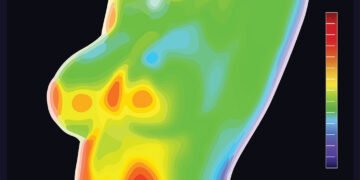



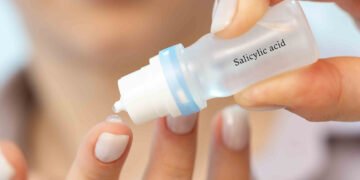




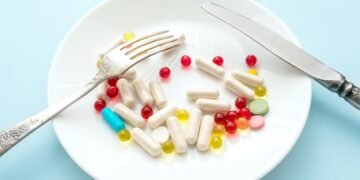



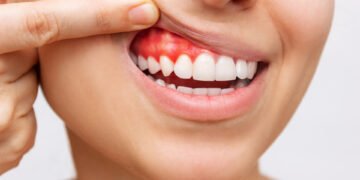
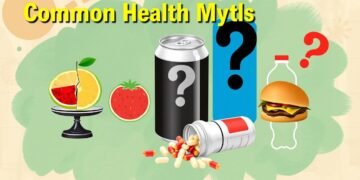


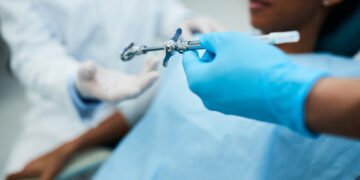











Discussion about this post